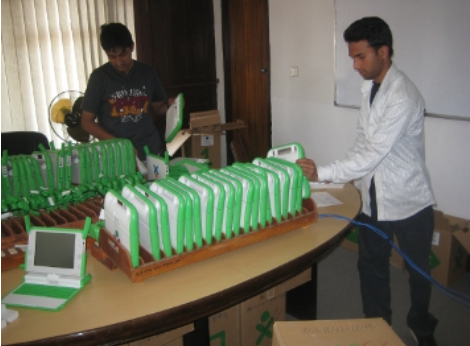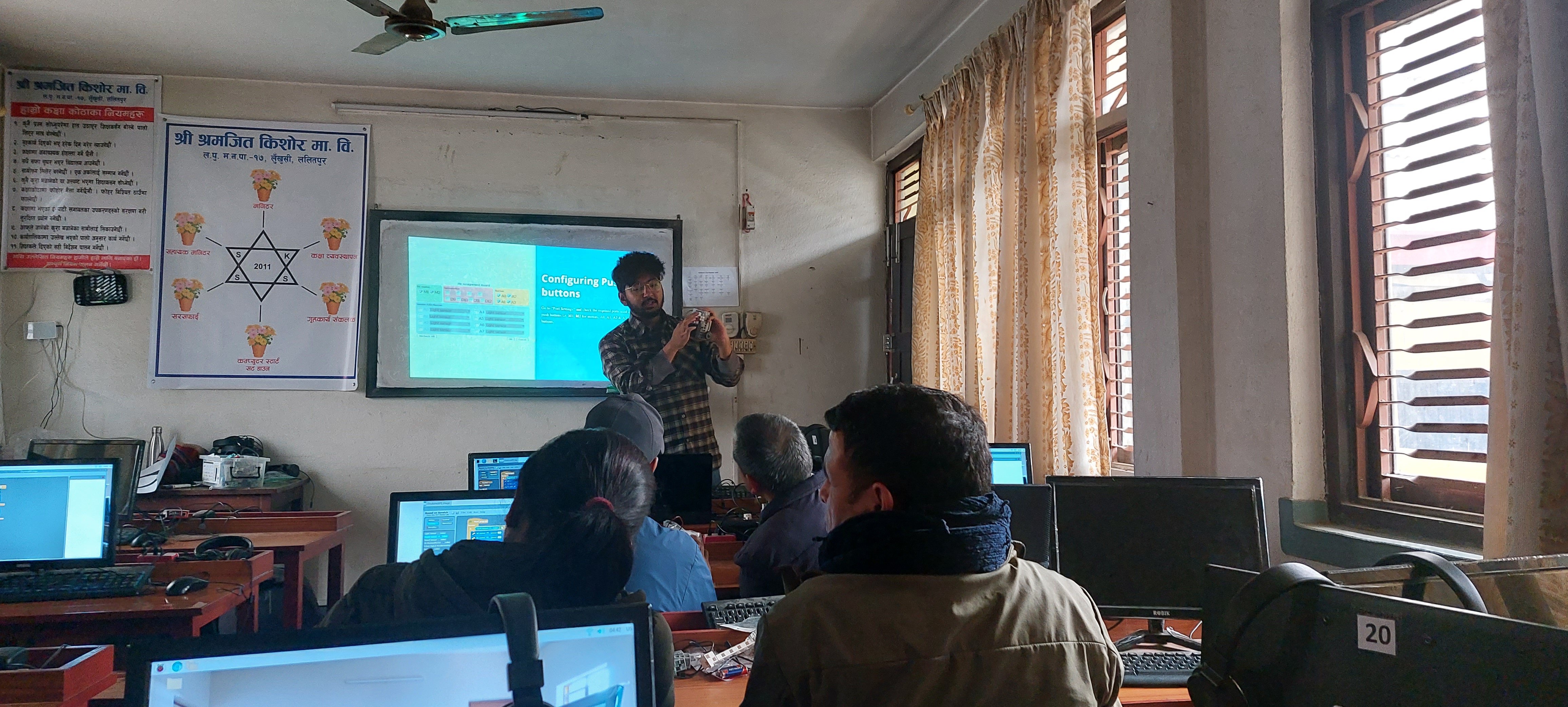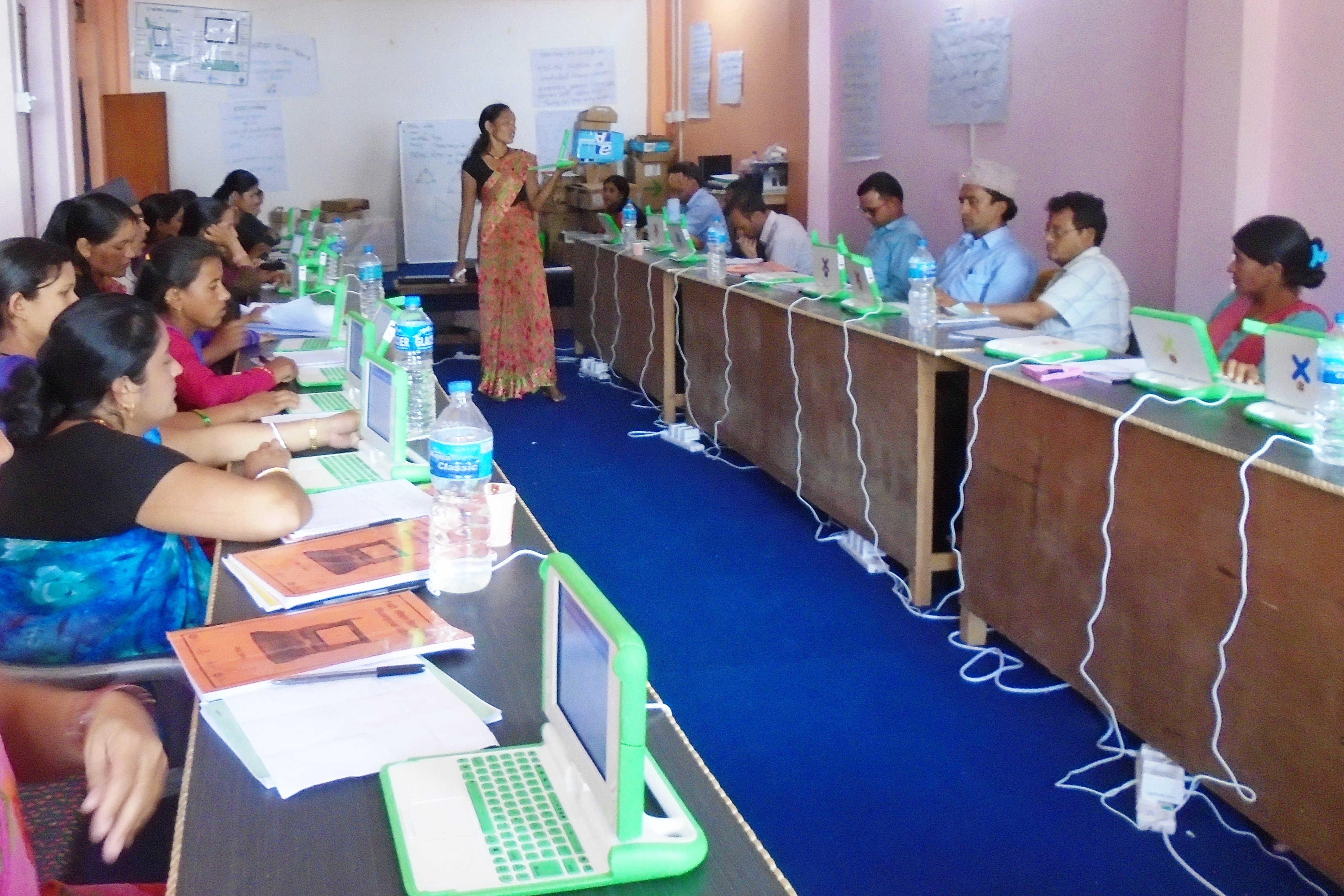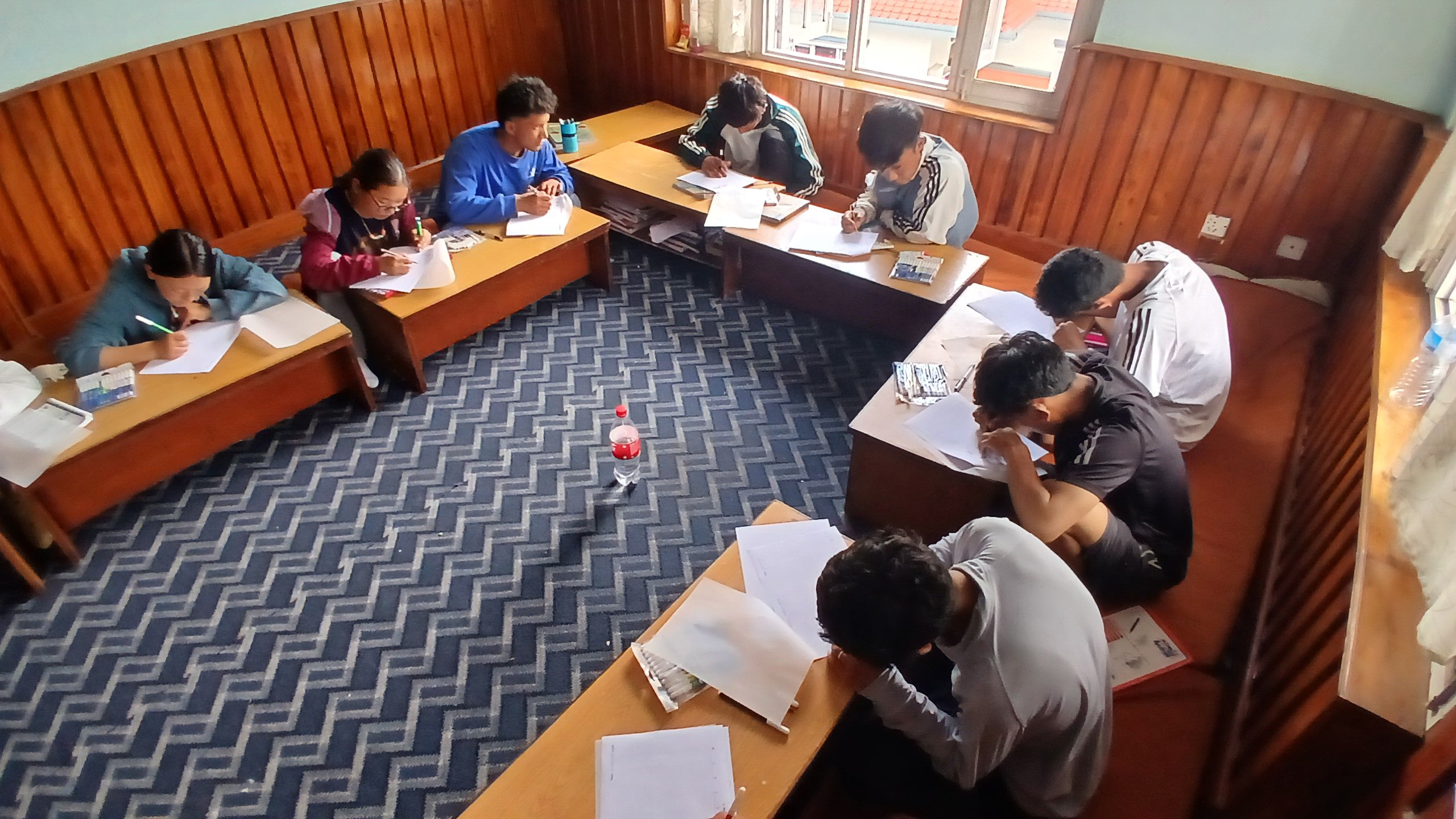194 Entries for “Recent Blogs”
-
 READ MORE
READ MOREMarch 31, 2011 | Program Updates | Rabi Karmacharya
Deployment 2011 !!
OLE Nepal office is once again abuzz with a flurry of activities; helpers hauling boxes of laptops, interns testing and preparing laptops, technical team preparing school servers with latest NEXS*, program officers calling schools to figure out the additional number of students who will need laptops and bags, training coordinator arranging training programs, people bundling up bags to be shipped to schools. Yes, we are getting ready for the next round of deployment of laptops ahead of the new school year that will begin in mid-April. The interns have taken over the meeting room, the biggest one in the building, and turned it into a staging place for the laptops. The room is a good 5 degrees warmer than the rest of the building with up to 40 laptops running at any given moment, being nand-blasted with the latest version of NEXO*. The interns have dnragged in two stand fans hoping to make the room a bit more bearable. Boxes of laptops line up against the wall with labels showing the names of the destination schools. Bundles of bags carry similar labels. In the other room the network team is preparing plans to wire more classrooms and connect schools to the Internet. The content development team is working frantically to meet the deadline set by the deployment team. The environment around the office is quite intense, yet exciting.
-
 READ MORE
READ MOREMarch 3, 2011 | Program Updates | OLE Nepal
YA Literature Workshop (Phase I), Nagarkot
On 4th and 5th February 2011, OLE Nepal organized a writer's workshop to create Young Adult (YA) novels for Nepali youths. The two-day workshop took place in Nagarkot Farmhouse, Nagarkot, and had twenty-one participants. The workshop was facilitated and moderated by OLE Nepal's E-Pustakalaya advisers Churamani Bandhu, Dhurva Ghimire, Geeta Keshary, Hiranya Kumari Pathak, Rambabu Subedi, and Vinaya Kasajoo. Prof. Dr. Mahadev Awasti, representing the National Academy's Children's Literature wing, was also present as a member of the Editorial team. The rest of the participants were young aspiring authors who had mainly written for children and occasionally tried writing for adults.
-
 READ MORE
READ MOREJan. 5, 2011 | Program Updates | OLE Nepal
Young Adult’s Literature: Seminar
As mentioned in an earlier post (http://olenepal.org/our-stories/ya-literature-workshop-phase-i-nagarkot/), OLE Nepal has started the initiative to create content suitable for Young Adults. As a first step, a seminar was organized on December 22, 2010, in Kathmandu to discuss the various issues, problems, and challenges faced by young adults in everyday life. The seminar was attended by eminent authors, artists, teachers, students, social workers, parents, and others related to the literary field.
-
 READ MORE
READ MOREDec. 14, 2010 | Impact Stories | OLE Nepal
Changing Nepali Classrooms
Mr. Acharya’s dream does not seem too farfetched when he has dedicated and competent teachers like Mr. Sambhu Prasad Bhat. Observing Mr. Bhat’s ICT-integrated class is as good as getting a crash course on how to use various resources to deliver an effective class. Mr. Bhat has clear and well-thoughtout plan. He would start with Grade 6 English textbook where children are explained about alphabetical order. While the children eagerly read what the book has on the topic, Mr. Bhat writes the names of few students on the white board. He asks the children to arrange the names in the Alphabetical Order. Children are excited to see their names on the board. It did not take long for the children to copy the ten names in alphabetical order on each of their exercise books. The children are then asked to open their E-Paati laptops.
-
 READ MORE
READ MOREDec. 10, 2010 | Program Updates | OLE Nepal
Nepali Young Adult's Literature: Content Creation Project
OLE Nepal has started an ambitious project to create content relevant to Young Adult (YA) in Nepali literature. Over the span of two years, we spent collecting and archiving work of Nepali literature, and we realized that there was a real dearth of literary materials for YAs between the ages of eleven and eighteen. After a number of discussions on this topic, E-Pustakalaya's Advisory Panel met on November 30, 2010, at the OLE Nepal office to plan the content creation process to meet the literary needs of teenagers in Nepal.